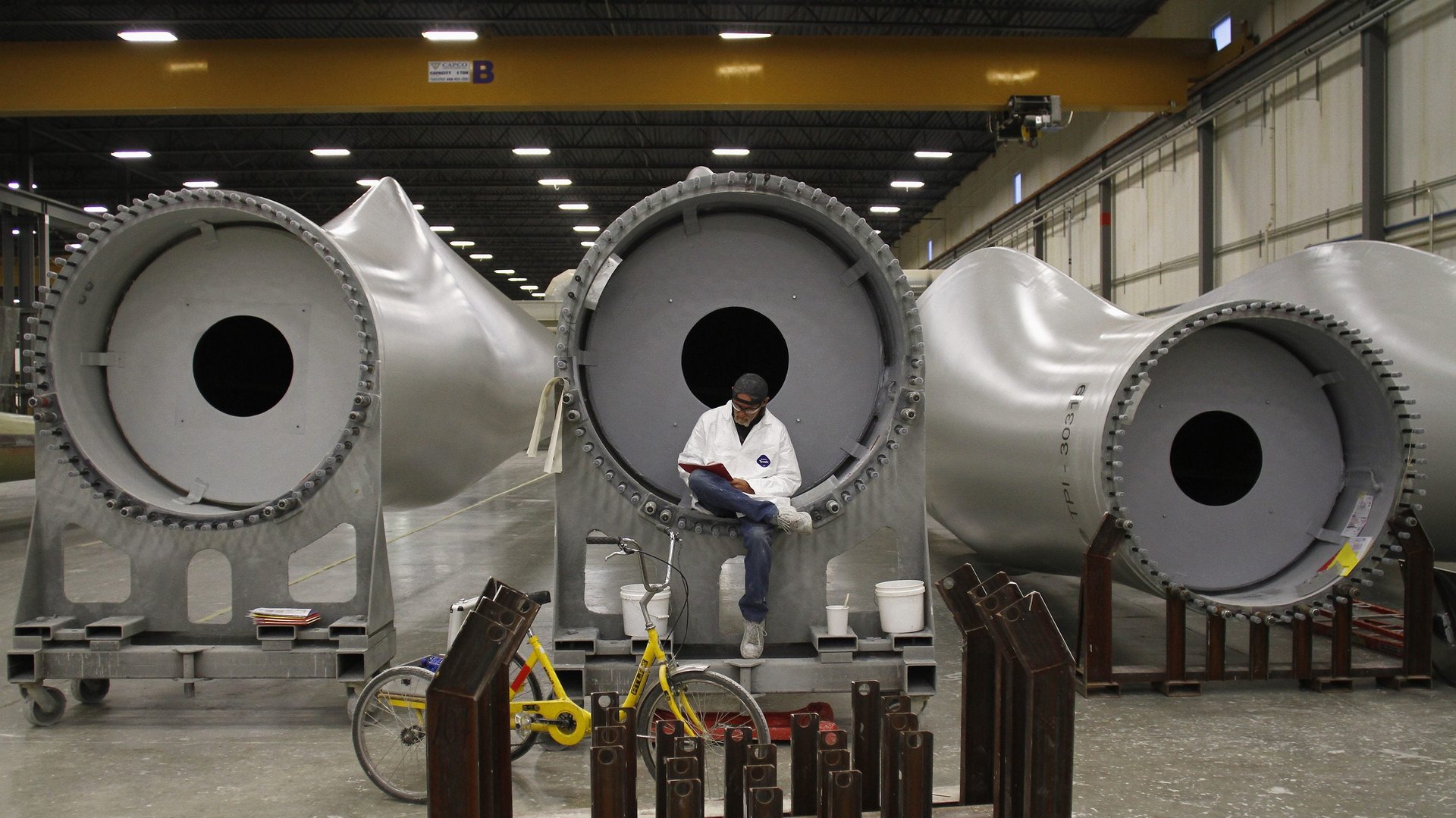Biden’s climate politics strategy paid off in the debate
In Tuesday night’s debacle of a US presidential debate, a thoughtful deliberation of policy details was not on the table. But the issues of climate change and a clean energy transition—though not originally planned as debate topics—ended up being among the most substantive (relatively) parts of the conversation. Hey, it’s 2020 in America: Strange things happen every day, and we’ll take what progress we can get.


In Tuesday night’s debacle of a US presidential debate, a thoughtful deliberation of policy details was not on the table. But the issues of climate change and a clean energy transition—though not originally planned as debate topics—ended up being among the most substantive (relatively) parts of the conversation. Hey, it’s 2020 in America: Strange things happen every day, and we’ll take what progress we can get.
President Donald Trump tried to pressure former vice president Joe Biden, the Democratic nominee, into saying he supports the Green New Deal, a policy favored by the party’s left wing that Trump has inaccurately depicted as prohibitively expensive. Meanwhile, Biden fumbled some of the details of his own climate plan, saying that it will “create thousands and millions of jobs.” Still, apart from some passing other references to “crystal clean air and water” and “forest management,” the climate conversation stayed predominantly focused on jobs and the growing clean energy industry. These are subjects that Trump apparently finds particularly hard-pressed to respond to, even though he is usually more inclined to trumpet fossil fuel industry jobs. During the debate, Trump was even roped into supporting green jobs himself, voicing tepid support for electric vehicles.
In other words, last night’s debate proved that a focus on jobs is a winning way for Biden to frame his climate policy—as he has since he announced it in July. Refocusing climate policy narrowly around job creation provides less of an opening for the kind of anti-science rebuttal Trump normally reaches for when the subject comes up.
In that respect, the pandemic has been a boon to Biden’s rhetoric. While the US clean energy industry lost a large number of jobs this year, it has already begun to rebound. The employment outlook for solar installers and building retrofitters is bright, and likely to ramp up in the early stages of post-pandemic economic recoveries in the US and around the world—especially compared to the fossil fuel industry, for which the outlook is grim. The price of oil remains stubbornly stuck at low levels; US oil and gas employers continue to suffer fresh bankruptcies and mass layoffs. Perhaps for that reason, in last night’s debate, Trump didn’t mention the fossil fuel industry—usually a go-to talking point—a single time.